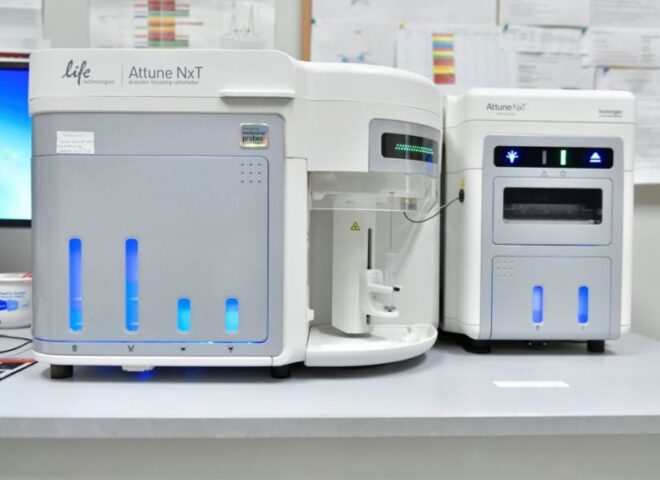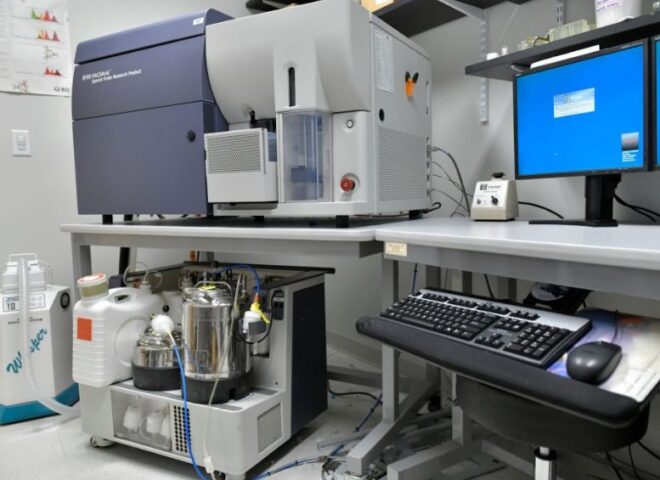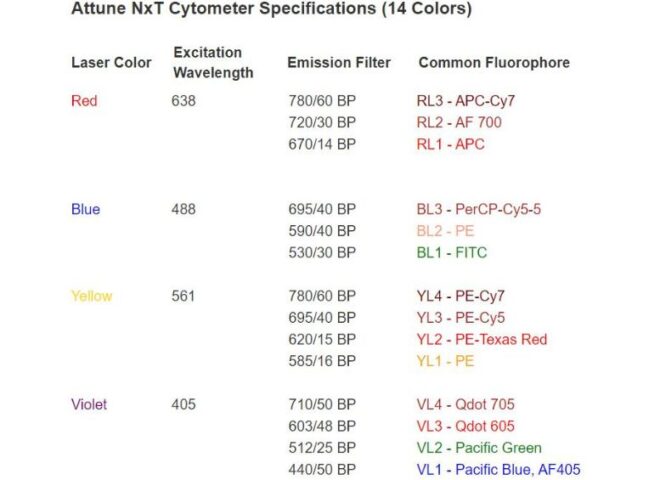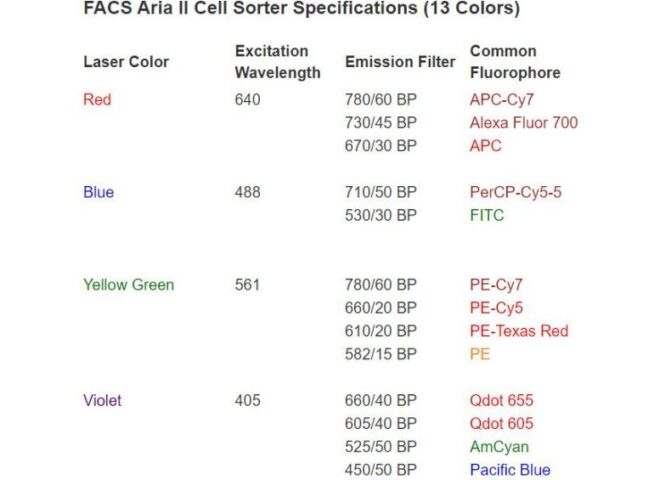Summary
The ADA Forsyth Flow Cytometry Core manages and maintains 2 major pieces of equipment for Flow Cytometry and cell sorting analysis and offers consulting and support services for the detection of up to 14 different fluorescent parameters simultaneously, RBC contaminated samples, and high-throughput analysis using 96 or 384-well plates. The cell sorter allows for collecting cells/particulates of interest, after-screening for positively selected markers, downstream applications, and is capable of sorting four separate cell populations simultaneously.
ADA Forsyth Flow Cytometry Core does allow independent use of equipment once users have completed mandatory training and demonstrate proficiency. Fees are either hourly or by sample depending on the cytometer being used. Please request more information from flowcytometry@forsyth.org

Mission
To provide researchers access to flow cytometry analysis and cell sorting. To train researchers to proficiently operate the core flow cytometers and navigate cytometer specific software.
Services Offered:
- Hourly rate access to equipment below

Equipment
Invitrogen™ Attune™ NxT Flow Cytometer
- Features acoustic-assisted hydrodynamic focusing, which allows for sample-throughput rates up to 10 times faster than traditional cytometers.
- Using violet side scatter detectors it is possible to run no-wash, no-lyse protocols with RBC contaminated samples.
- 96 and 384 well plate autosampler for high throughput analysis.
- Our current filter setup allows for analyzing up to 14 separate colors/cell markers from a single sample

BD FACS Aria™ II Cell Sorter
- Pressure driven fluidics.
- Positive air pressure forces sample cells through an optically gel-coupled cuvette flow cell.
- Hydrodynamic focusing guides particles in a single-file stream through the cuvette, where laser light intercepts the stream at the sample interrogation point. After which the sample passes electrically charged deflection plates in the sort block, and is directed to its final collection tube, well plate, or slide in the sort collection chamber.
- Temperature control, aerosol management, and multiple tube holders are available.
- Our current filter setup allows for analyzing up to 13 separate colors/cell markers from a single sample.

Additional Services Information
What is Flow Cytometry?
Flow Cytometry (abbreviated: FCM) is a technique for counting and examining microscopic particles, such as chromosomes, by suspending them in a stream of fluid and passing them by an electronic detection apparatus. It allows simultaneous multiparametric analysis of the physical and/or chemical characteristics of up to thousands of particles per second. Flow cytometry is routinely used in the diagnosis of health disorders, especially blood cancers, but has many other applications in both research and clinical practice. A common variation is to physically sort particles based on their properties, so as to purify populations of interest. This technique is known as fluorescence activated cell sorting (FACS), which uses fluorescent labels as a method for detection.
Research Applications for Flow Cytometry
- Apoptosis
- Phagocytosis
- Bacteria cell count/viabilit
- T-cell cytokine expression
- Bead based immunoassays
- Antibody screening
- RNA gene expression
Protein phosphorylation
Acknowledging the Core
If you publish data obtained through the core, please cite in the methods or acknowledgements: “Flow Cytometry data was acquired at the ADA Forsyth Institute Flow Cytometry Core Facility (RRID:SCR_009785).”
Contact/ Resources
Contact core for assistance with methods, project design, or a quote
Additional Resources
